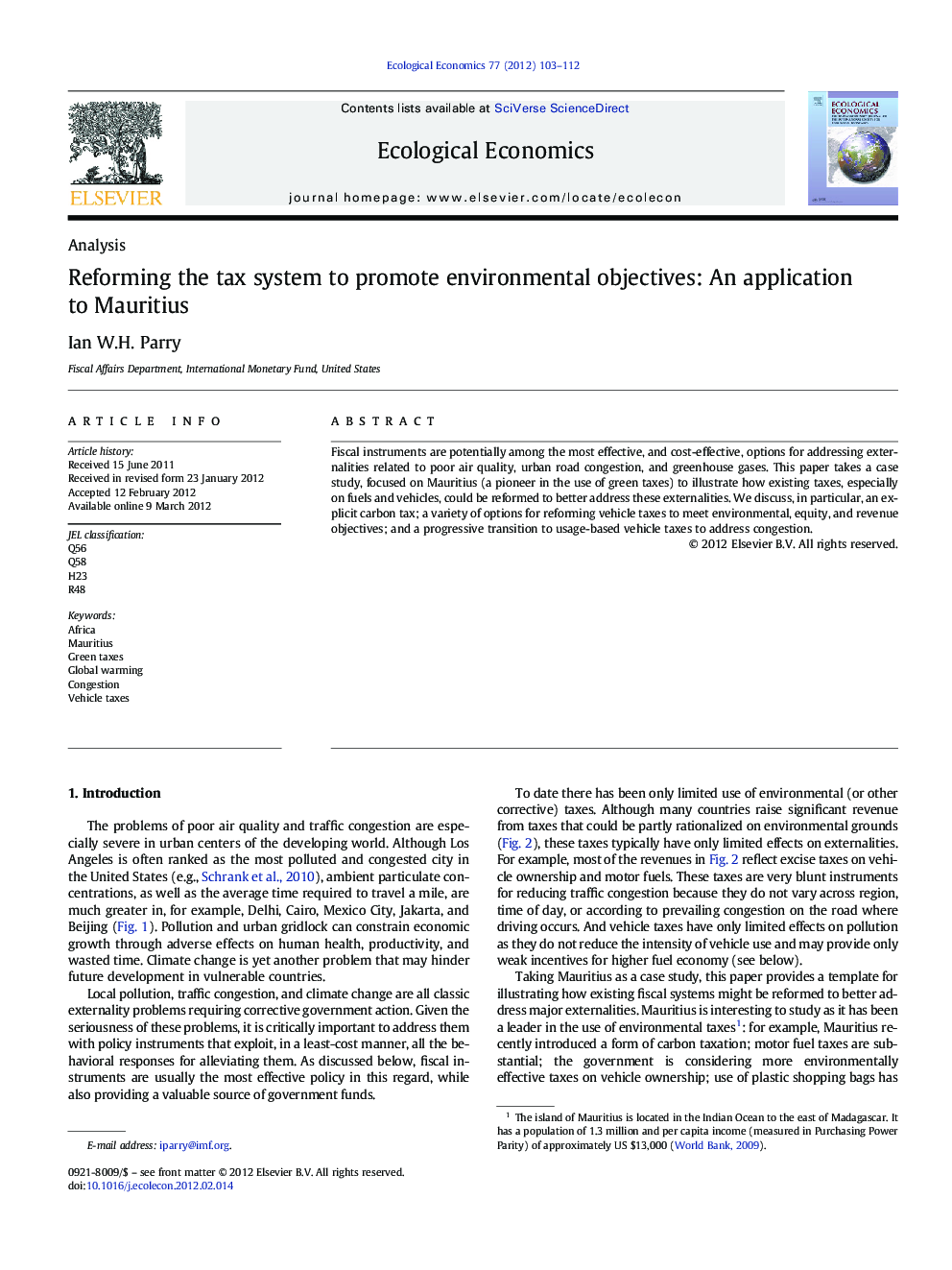| Article ID | Journal | Published Year | Pages | File Type |
|---|---|---|---|---|
| 5050280 | Ecological Economics | 2012 | 10 Pages |
Fiscal instruments are potentially among the most effective, and cost-effective, options for addressing externalities related to poor air quality, urban road congestion, and greenhouse gases. This paper takes a case study, focused on Mauritius (a pioneer in the use of green taxes) to illustrate how existing taxes, especially on fuels and vehicles, could be reformed to better address these externalities. We discuss, in particular, an explicit carbon tax; a variety of options for reforming vehicle taxes to meet environmental, equity, and revenue objectives; and a progressive transition to usage-based vehicle taxes to address congestion.
⺠We discuss the use of fiscal instruments to reduce congestion and pollution in Mauritius. ⺠We discuss a carbon tax and estimate externality-correcting taxes on motor fuels. ⺠Several options for reforming vehicle taxes to meet environmental and revenue goals are evaluated. ⺠A progressive transition to mileage-based vehicle taxes is recommended to address congestion. ⺠A variety of broader options for green tax reforms are briefly discussed.
